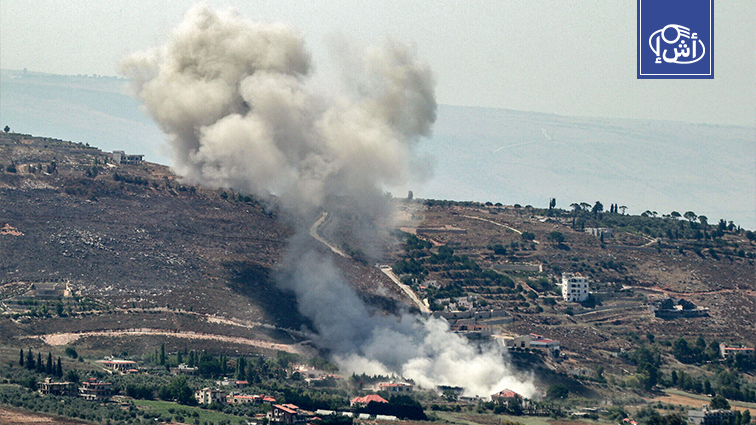On Thursday, the Lebanese Ministry of Health announced the cumulative death toll from the Israeli raids and bombing targeting several villages in southern Lebanon and the Bekaa Valley in the east of the country.
The Ministry stated in its statement that “in follow-up to the Israeli aggression against Lebanon, the cumulative report on the health emergency until July 9, 2024, reveals that 1,438 infections and 466 deaths were recorded.”
Military operations between Israel and Hezbollah escalated to include bombing deeper areas on both sides of the border, as the Israeli army targeted towns deep in the south and the Bekaa, while Hezbollah announced the bombing of an ammunition storage base near Tiberias, which is the deepest bombing so far, in addition to targeting Meron Air Control Base in the occupied Syrian Golan.
Since the beginning of the war, the Israeli army has monitored 5,450 rocket launches towards northern Israel, including 50 launches in one day last June.
The Israeli Alma Center for Research and Education reported that the vast majority of launches during the first three months of the war were anti-tank missiles towards the areas closest to the border, while Hezbollah’s use of drones steadily increased in March.
The United Nations Special Coordinator in Lebanon, Jeanine Hennis-Plasschaert, arrived in Tel Aviv in preparation for the scheduled consultation session of the Security Council on the implementation of Resolution 1701 before the end of this month.
Its discussions with Israeli officials focus on the need to restore calm and create space for a diplomatic solution through which displaced civilians on both sides can return to their homes, in addition to addressing the outstanding provisions of Resolution 1701.
For his part, the head of the Southern Council in Lebanon, Hashem Haider, announced that the amount of damage in southern Lebanese villages and towns as a result of the Israeli bombing has so far amounted to $1.7 billion, explaining that the damage included the complete and partial destruction of 3,000 housing units, 12,000 units with severe damage, and 20,000 units. With minor damage.
Haider confirmed that the agricultural sector lost 17 million square meters of land that was completely burned as a result of the bombing, most of it with white phosphorus.
Since October 8, the southern Lebanon front has witnessed an exchange of bombardments between the Israeli army and Hezbollah, which announced that the Lebanon front is a “support front” for Gaza, stressing that the ceasefire in the Gaza Strip will inevitably withdraw on the southern Lebanon front.
The Secretary-General of Hezbollah, Hassan Nasrallah, announced that “reaching an agreement will immediately end the attacks from southern Lebanon,” adding that “what Hamas accepts, we all accept, and we are all satisfied with.”
Rafah attack… international outrage over Israel’s raid on displaced persons’ tents
